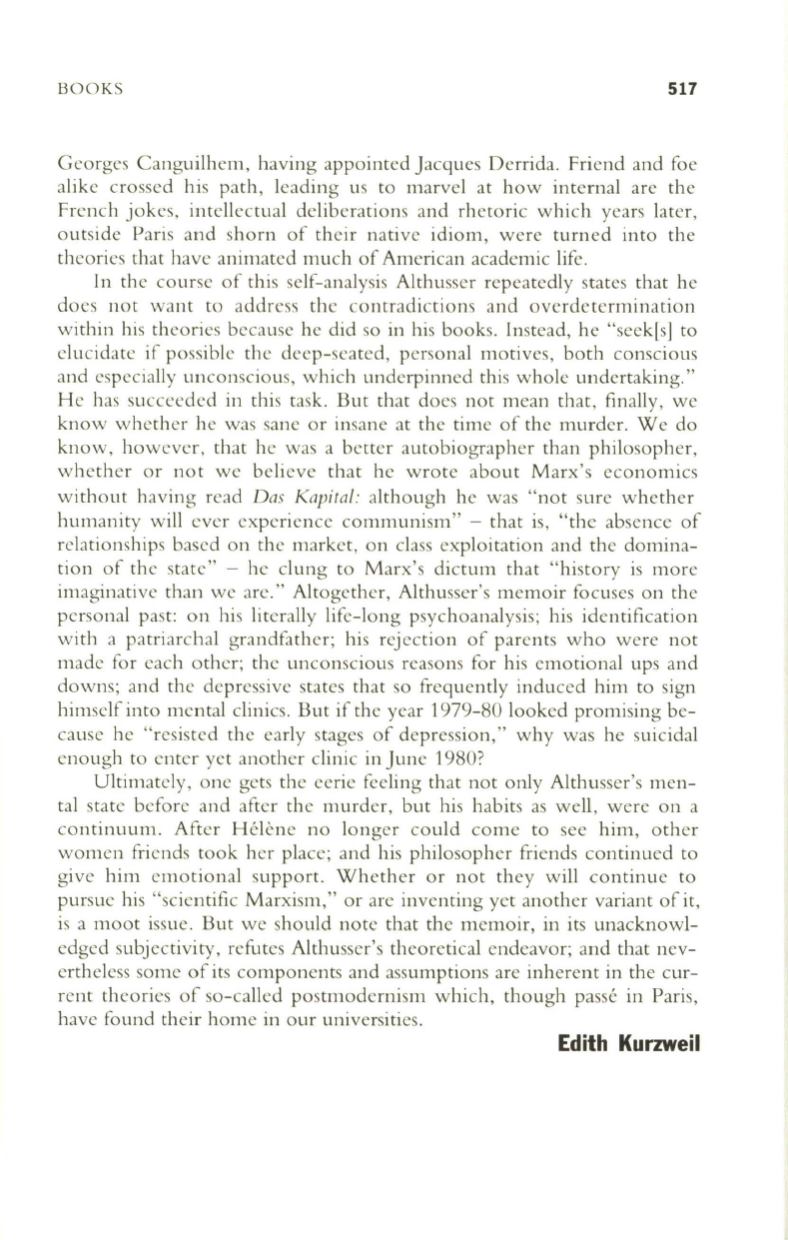
BOOKS
517
Georges Canguilhem, having appointed Jacques Derrida. Friend and foe
alike crossed his path, leading us
to
marvel at how internal are the
French jokes, intellectual deliberations and rhetoric which years later,
outside Paris and shorn of their native idiom, were turned into the
theories that have animated much of American academic life.
In the course of this self-analysis Althusser repeatedly states that he
does not want to address the contradictions and overdetermination
within his theories because he did so in his books. Instead, he "seek[sJ to
elucidate if possible the deep-seated, personal motives, both conscious
and especially unconscious, which underpinned this whole undertaking."
He has succeeded in this task. But that does not mean that, finally, we
know whether he was sane or insane at the time of the murder. We do
know, however, that he was a better autobiographer than philosopher,
whether or not we believe that he wrote about Marx's economics
without having read
Das Kapital:
although he was "not sure whether
humanity will ever experience communism" - that is, "the absence of
relationships based on the market, on class exploitation and the domina–
tion of the state" - he clung to Marx's dictum that "history is more
imaginative than we are." Altogether, Althusser's memoir focuses on the
personal past: on his literally life-long psychoanalysis; his identification
with a patriarchal grandfather; his rejection of parents who were not
made for each other; the unconscious reasons for his emotional ups and
downs; and the depressive states that so frequently induced him to sign
himself into mental clinics. But if the year 1979-80 looked promising be–
cause he "resisted the early stages of depression," why was he suicidal
enough to enter yet another clinic in June 1980?
Ultimately, one gets the eerie feeling that not only Althusser's men–
tal state before and after the murder, but his habits as well, were on a
continuum. After Helene no longer could come to see him, other
women friends took her place; and his philosopher friends continued
to
give him emotional support. Whether or not they will continue to
pursue his "scientific Marxism," or are inventing yet another variant of it,
is a moot issue. But we hould note that the memoir,
in its
unacknowl–
edged subjectivity, refutes Althusser's theoretical endeavor; and that nev–
ertheless some of its components and assumptions are inherent in the cur–
rent theories of so-called postmodernism which, though passe in Paris,
have found their home in our universities.
Edith Kurzweil


